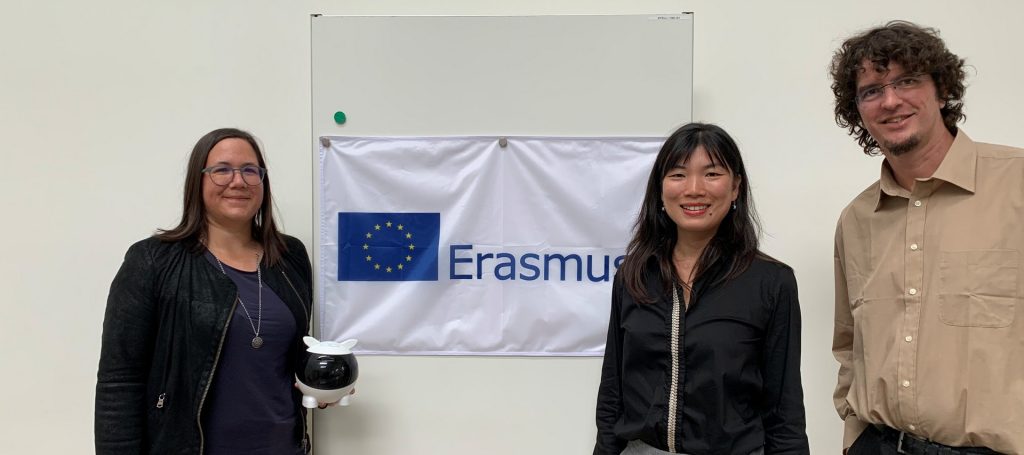In the picturesque town of Vaduz, Liechtenstein, Leona, Isabella, and Johannes, gathered on a sunny August 30th for what would be the final transnational meeting of the AI-bility project. This meeting marked the culmination of a remarkable two-year journey that had taken them across Europe in pursuit of a noble goal – exploring how conversational AI can help school children learn. Supported by the European Union’s Erasmus+ funding scheme, this project had not only advanced their understanding but also forged new and lasting friendships.

Beyond the impressive surroundings, the trio had a packed agenda. Administrative tasks were essential, but the heart of their meeting lay in the critical reflection of the empirical results obtained from their experiment with 50 school children in Innsbruck, Austria.
With enthusiasm and dedication, Leona, Isabella, and Johannes delved into the data, meticulously analyzing the outcomes of their groundbreaking experiment. Katrin and Armin participated from the distance and helped to bring a fresh perspective into their theorizing.The ultimate question was whether conversational AI had the potential to transform how school children engage with and retain knowledge. Their deep discussions allowed them to draw meaningful insights that would shape their research’s future direction.
After an intense day of brainstorming, discussing, reflecting, and evaluating, the time came for farewells. As the sun dipped below the horizon, they captured the essence of their journey with a final picture – a symbolic token of the AI-bility project’s closure.
The AI-bility project was not only about academic progress and outreach; it was a celebration of friendship. Through the project’s duration, these researchers had not only learned from each other but had also built bridges between different institutions and countries. The bonds formed were as strong as the knowledge acquired. The project had become a microcosm of what international collaboration can achieve.
As we look back on our journey, we express our gratitude to the European Union’s Erasmus+ funding scheme, which had made this initiative possible. Without their support, the project might have remained a dream, rather than a reality. The funding scheme had not only invested in research but in the potential to create a bridge between research and schools across Europe. The AI-Bility project’s story doesn’t end here. In the coming months and years, we will continue our dissemination activities. We are committed to sharing what we have learned with researchers, teachers, parents, and, most importantly, school children. The knowledge gained is a beacon, guiding educators and learners toward a more innovative and effective educational landscape.